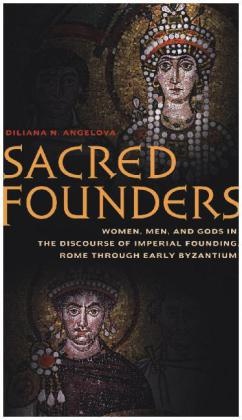Read more
"Sacred Founders argues that from the time of Augustus through early Byzantium, a discourse of imperial founding helped articulate and legitimate imperial authority. Artwork, literature, imperial honors, and the built environment comprised the statementsin this multi-authored, empire-wide discourse. These statements were bound by the idea that imperial men and women were sacred founders of the land, mirror images of the empire's divine founders. By establishing a new capital for the Roman Empire, Constantine and his formidable mother, Helena, initiated its Christian transformation. Over time this transformation empowered imperial women, transformed the cult of the Virgin Mary, fueled contests between church and state, and provoked an arresting synthesisof imperial and Christian art. With balanced analysis, Angelova presents a fresh argument about the symbolic logic of Roman rule and uncovers forgotten legacies that profoundly shaped the Christian era"--Provided by publisher.
Summary
Diliana Angelova argues that from the time of Augustus through early Byzantium, a discourse of “sacred founders”—articulated in artwork, literature, imperial honors, and the built environment—helped legitimize the authority of the emperor and his family. The discourse coalesced around the central idea, bound to a myth of origins, that imperial men and women were sacred founders of the land, mirror images of the empire’s divine founders. When Constantine and his formidable mother Helena established a new capital for the Roman Empire, they initiated the Christian transformation of this discourse by brilliantly reformulating the founding myth. Over time, this transformation empowered imperial women, strengthened the cult of the Virgin Mary, fueled contests between church and state, and provoked an arresting synthesis of imperial and Christian art. Sacred Founders presents a bold interpretive framework that unearths deep continuities between the ancient and medieval worlds, recovers a forgotten transformation in female imperial power, and offers a striking reinterpretation of early Christian art.
Report
Diliana Angelova offers fresh and highly original approaches to a set of topics of great interest: Constantinople, imperial representation, late Roman empresses, and the cult of the Virgin Mary. Truly a great, groundbreaking book!Susanna Elm, Professor of History at University of California, Berkeley and author of Sons of Hellenism, Fathers of the Church: Emperor Julian, Gregory of Nazianzus, and the Vision of Rome

